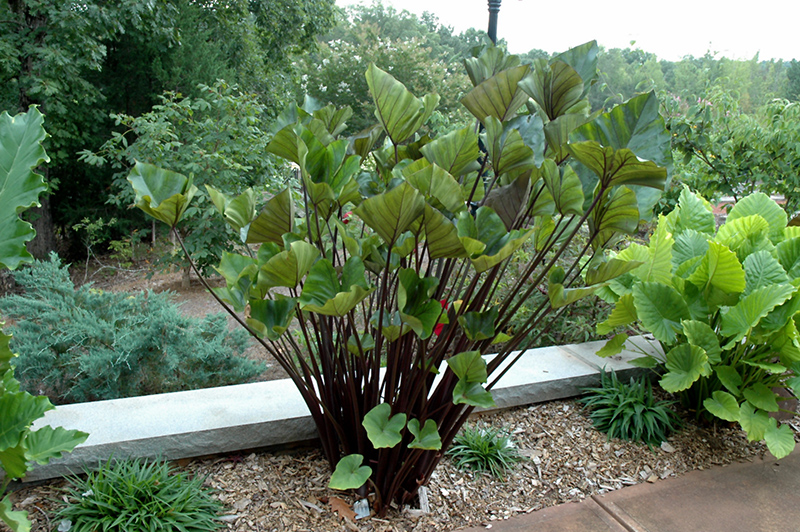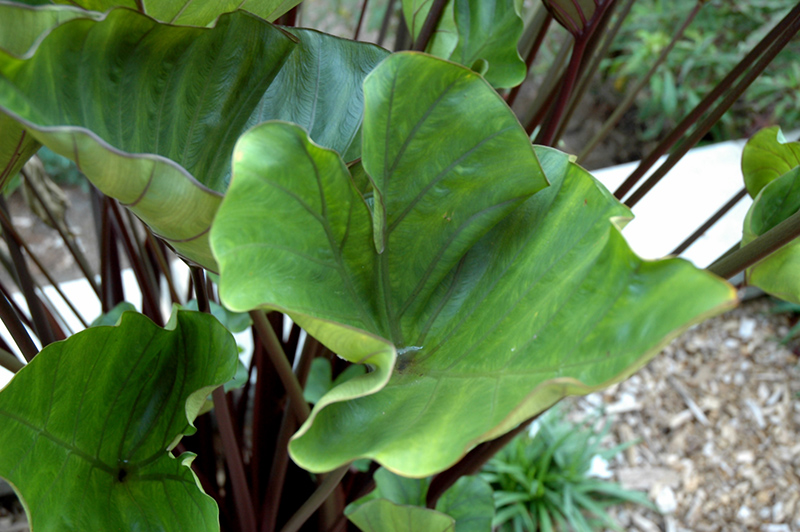Tea Cup Elephant Ear
Colocasia esculenta 'Tea Cup'
Height: 5 feet
Spread: 4 feet
Sunlight:
![]()
![]()
Hardiness Zone: (annual)
Other Names: Cocoyam, Dasheen, Taro
Description:
Upright, cupped green leaves with dark purple spines and petioles; best grown in fertile, organically rich soil; in colder climates it can be removed after first frost and stored in a cool dry place until spring; a stunning garden or pondside accent
Ornamental Features
Tea Cup Elephant Ear is primarily valued in the landscape or garden for its cascading habit of growth. Its attractive large heart-shaped leaves remain green in color with pointy deep purple spines throughout the season.
Landscape Attributes
Tea Cup Elephant Ear is an open herbaceous annual with a shapely form and gracefully arching foliage. Its wonderfully bold, coarse texture can be very effective in a balanced garden composition.
This is a relatively low maintenance plant, and should be cut back in late fall in preparation for winter. It has no significant negative characteristics.
Tea Cup Elephant Ear is recommended for the following landscape applications;
- Accent
- Mass Planting
- General Garden Use
- Container Planting
Planting & Growing
Tea Cup Elephant Ear will grow to be about 5 feet tall at maturity, with a spread of 4 feet. Although it's not a true annual, this fast-growing plant can be expected to behave as an annual in our climate if left outdoors over the winter, usually needing replacement the following year. As such, gardeners should take into consideration that it will perform differently than it would in its native habitat.
This plant does best in full sun to partial shade. It is quite adaptable, prefering to grow in average to wet conditions, and will even tolerate some standing water. It is not particular as to soil pH, but grows best in rich soils. It is somewhat tolerant of urban pollution. This is a selected variety of a species not originally from North America. It can be propagated by division; however, as a cultivated variety, be aware that it may be subject to certain restrictions or prohibitions on propagation.
Tea Cup Elephant Ear is a fine choice for the garden, but it is also a good selection for planting in outdoor pots and containers. Because of its height, it is often used as a 'thriller' in the 'spiller-thriller-filler' container combination; plant it near the center of the pot, surrounded by smaller plants and those that spill over the edges. It is even sizeable enough that it can be grown alone in a suitable container. Note that when growing plants in outdoor containers and baskets, they may require more frequent waterings than they would in the yard or garden.


